Today marks the six-week mark since I’ve been released from the hospital after suffering a bad case of Covid-19. I caught the bug in Ecuador. I first noticed symptoms on July 30. I tried to battle the virus myself without any medical attention until August 9th when I flew home to the USA. I spent a week in the hospital and was eventually discharged.
It’s been almost two months since first experiencing the Covid-19 symptoms. If you haven’t heard about my Covid-19 adventures, read Escape From Ecuador. I want to provide you all with an update on my status and the things I’ve learned fighting Covid-19 for almost two months.
This disease is not the trivial problem some media outlets make it out to be. I caught the virus after being fully vaccinated. I’m a healthy person with no co-morbidities. I eat well and supplement with all the vitamins and nutrients folks think will prevent Covid infections. I still caught the virus and spent a week in the hospital at a cost of more than $36,000 dollars.
I’ve been out of the hospital for six weeks now and still occasionally need supplemental oxygen. Most people have a pulse oxygenation of 98-99%. My pulse ox still hasn’t reached the “normal” level (over 95%). At rest, my pulse ox is 92-95%. After vigorous exercise, It drops to 85-87%. That’s a worrying number for people who haven’t had Covid-19.
As a sideline piece of advice, pick yourself up a cheap pulse oximeter. If you catch Covid and find your pulse ox to be lower than 90%, you need to go to the hospital.
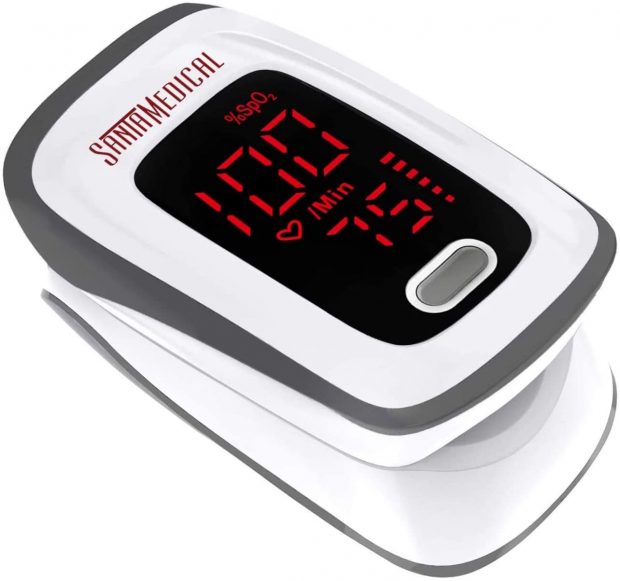
A $15 pulse ximeter is a good addition to your medical kits.
As I wrote in my previous article, my fight with Covid-19 made me lose 30 pounds, most of which was muscle tissue. I’m happy to say that I’m doing daily gym sessions and have regained 16 of those 30 pounds. The Covid really killed my gym progress. As soon as I got released and was out of quarantine, I went to the gym. I found that my max lifts were down 10%-20% overall.
That isn’t horrible, but the Covid didn’t affect my max strength nearly as badly as my muscular endurance. I’m still strong, but have zero gas.
I’ve been completely unable to do Crossfit-style high intensity workouts until this week. Last week I did three standard workouts that I regularly repeat. My times were down 30%-44% off of my pre-Covid results.
I get fatigued and need oxygen after doing extended strings of fire at the shooting range. I never thought I would get out of breath doing bullseye shooting with my Glock 19.
I generally feel good, but my lungs are still damaged two months out. Because my lungs aren’t oxygenating my blood in a normal fashion, my heart beats faster to circulate more of the less-oxygenated blood. My resting heart rate right now is about 90 beats per minute. Before Covid, my resting heart rate was in the low 60s.
Since I’ve retired, I make it a practice to walk/hike an average of 30 minutes a day in addition to my normal weight lifting and cardio exercise. My normal hiking pace on ground with varying elevation is slightly over three miles per hour. I’ve hiked at this rate for hundreds of hours since my retirement. When doing so, my normal pulse rate is normally not much more than 90 beats per minute.
I did a five-mile hike today on a trail that had some elevation gains and drops. I hiked it at my normal pace. Check out the heart rate on my training watch. This amount of exercise shouldn’t come close to bringing me to a 130 BPM heart rate.
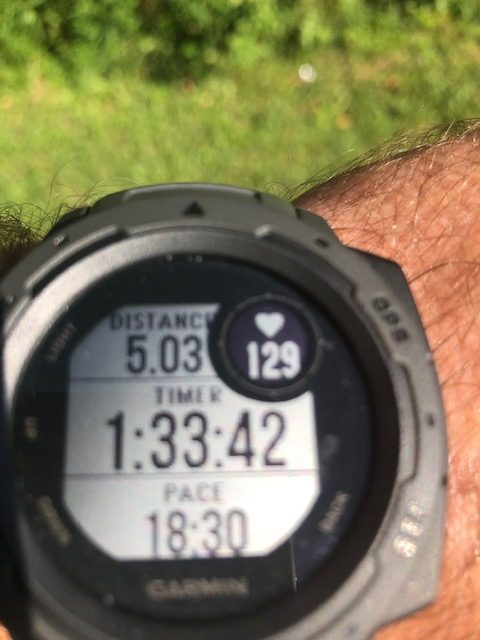
If a relatively moderate walking pace gets my heart rate to 129 BMP, you can imagine what doing something with more cardiovascular intensity might do. I still get gassed really easily and it’s been two months since I caught the virus.
My docs think that my condition is normal and will resolve in a couple more months as my lungs continue to heal. I can tell you that it sucks. Those of you who are gym rats like me should do everything possible to avoid this virus It’s going to take a long time to get back to the fitness level I had pre-Covid-19.
Silence is Golden. Despite being incredibly sick, I didn’t tell anyone I encountered in Ecuador about having the virus. I only told a few people back home that I was seriously ill. Most of my friends had no clue. I’m certain that my ability to shut my mouth saved my ass.
If I had been vocal about my symptoms, I would have been forcibly quarantined in a hospital in Ecuador (that has a 30% fatality rate for Covid patients). Being on my own made the journey tougher, but I’m certain I had a better outcome than I would have experienced in an Ecuadorian quarantine hospital.
I was vacationing in rural Ecuador when I caught the virus. I wasn’t staying at a fancy all inclusive hotel. Tourists traveling back to the USA must have proof of a valid Covid-19 negative test before entering the USA. A lot of those all-inclusive hotels offer free Covid-19 tests to their customers.
I would advise you not to take a test at your hotel. Go into the nearest town and do your Covid test there instead. If your hotel tests you and you are positive, they can order you to quarantine at the hotel at their normal rates.
I don’t like being forced to quarantine. If I take my test outside the hotel, the hotel staff won’t get the results. That means no forced quarantines. If I test at a location away from the hotel where I am staying, I can have some decisions about how I can quarantine myself or get out of the country for better medical attention.
Those “free” Covid-19 tests could be very expensive if you test positive.
Do tough things. Surviving other difficult situations provides you with a baseline to compare your current bad spot. When I first got sick, I began thinking about how I was camping in Colombia when I experienced my first symptoms of malaria. I felt like absolute dogshit and it hit me super quick. When a started vomiting and becoming delusional, I was on a jungle hike about 10 miles from where I was camping. I felt horrible, but I made it back to camp where I could spend the next few days in a hammock battling the virus.
When I first started feeling sick, I was able to think “You hiked 10 miles puking your guts out with malaria. Chilling in your hotel room isn’t nearly as bad as what you’ve already experienced.” That gave me a great bit of comfort.
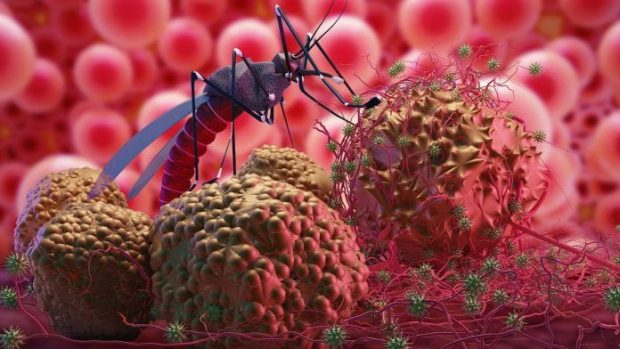
In Ecuador, my pulse ox was in the 70s and I had to run through the airport with my bags to catch my flight, I kept thinking back to getting high altitude cerebral edema when I climbed Mt. Kilimanjaro. “You’ve sucked wind before. It’s been worse. Remember those football, wrestling, and Judo practices when you thought you were going to die.”
As I was struggling moving through the airports, I was able to tell myself: “You’ve been through worse. You had to stop every three steps up Kili to catch your breath. This isn’t close to being that bad.”
Having experienced those tricky situations in the past, I was able to use them to encourage myself to get through my Covid-19 nightmare symptoms. Having that mental “anchor” of surviving similar (or worse) situations in the past gave me the mental strength to persevere through my Covid-19 symptoms.
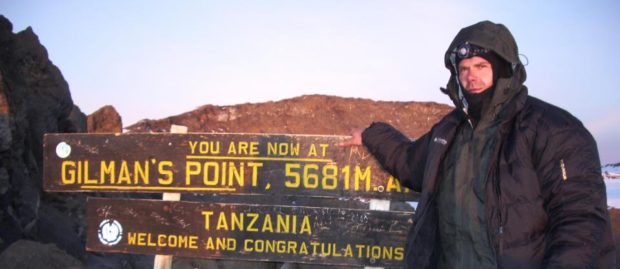
Just before I passed out at the summit of Kili
Be willing to bend the rules if your life is at stake. I had to have a negative Covid-19 test to get on the plane to go home to the USA. I had a positive test and was really sick. My choices were either to stay in a third world country for Covid-19 hospital treatments or come up with some test results that showed me not having the virus. I chose the latter.
What would you do? Take the chance of dying in a third world country where Covid-19 medical care isn’t close to best practices or alter your documents to travel back home where you know you’ll get the best medical care in the world?
I chose to go home. My backup plan was to fly into Juarez, Mexico instead. Mexico doesn’t require a negative Covid test for entry. Upon arrival, I could walk across the border into El Paso and take another flight home.
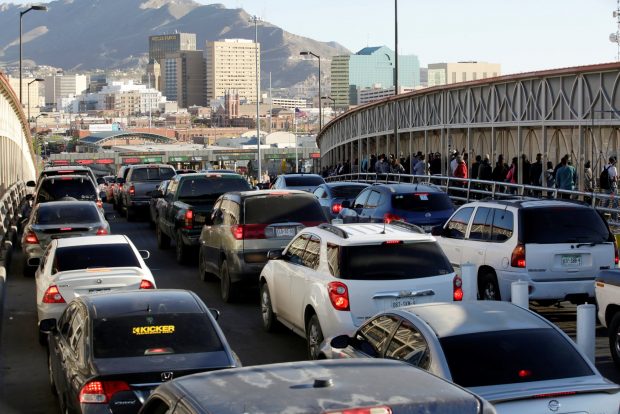
The Juarez/El Paso border crossing
That option would have been completely legal and would have endangered exactly the same number of my fellow air passengers. The downside is that doing so would have caused a significant delay in my travel. I would have arrived home about 36 hours after the flight I had already booked.
In talking to my doctor friends about the incident, they were all convinced that I would have likely perished if my treatment was delayed somewhere between 24 and 48 hours. Flying through Mexico would have been legal but would have added significant time to my travel schedule. I might have made it. I might have died.
Put yourself in that position. Would you risk your life to take a completely legal flight or would you do something that might be illegal to get a flight home faster? Keep in mind that both flights present similar risks for the exact same number of other passengers.
I chose to go the unconventional route. I think it saved my life.
End of Life Considerations– I have advanced medical directives, a living will, health care powers of attorney, and a will designating where my property goes should I die. I didn’t have access to any of those documents with me when I was close to dying in Ecuador. I had to fix that problem immediately.
Wouldn’t you like knowing that a loved one has a health care power of attorney over you should you become incapacitated when in another country? Do you have access to the documents that grant someone that responsibility when you travel? I had never considered the possibility that I might need someone else to make my medical decisions for me when I was injured/sick in another country.
I scanned all of those legal documents and uploaded them to my Dropbox account so I would have access to them everywhere in the world where I had an internet connection. I would urge you to do something similar.
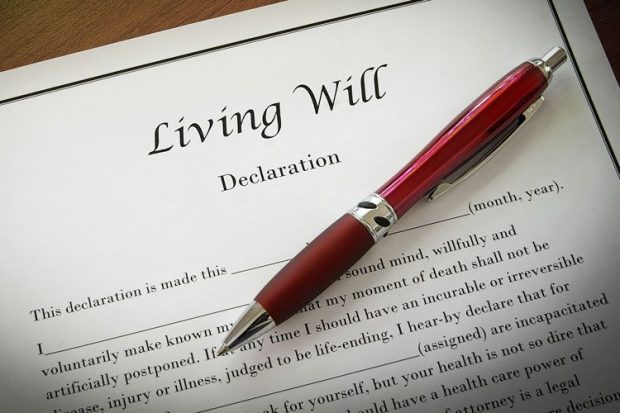
Almost dying in a foreign country caused me to look at some things a bit differently. I hope this article helps you to understand some of the difficulties of having a medical emergency in another country and provides you with some useful guidance to persevere should you be thrust into a similar situation.


